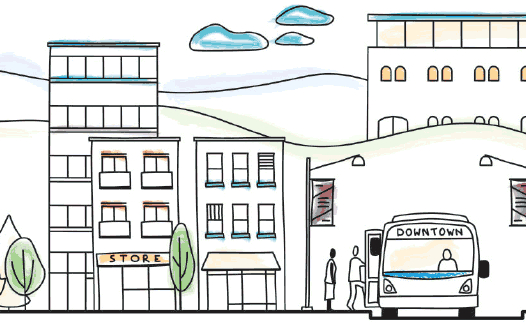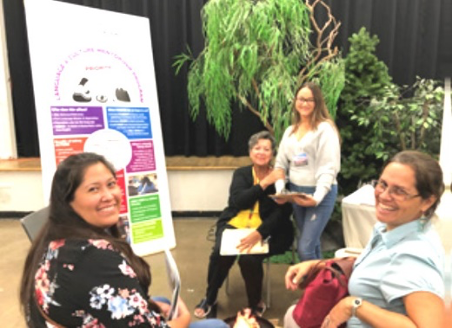The Intersectoral Fund
The Intersectoral Action Fund (ISAF) is a grants program by the Public Health Agency of Canada (PHAC), designed to bolster community capacity for intersectoral action on social determinants of health. The ISAF funds organizations addressing the societal, economic, legal, and political structures and norms that impact individuals and their behaviours. The program aims to enhance population health, reduce health inequities, and strengthen community resilience.
The 2022-23 ISAF funding cohort contained 13 projects. Each ISAF-funded project engaged diverse stakeholders – including community organizations, government agencies, local businesses, and individuals with lived experience – to collaboratively develop a common agenda and an action plan to address a pressing public health issue. This approach enabled the implementation of solutions for a range of complex health priorities while fostering long-term systemic change.
The Collective Impact (CI) Framework – a proven framework for multi-sector collaboration – served as the foundational model for 2022-23 ISAF funded projects. Each project required coordination across various sectors to tackle complex health challenges affecting health equity and well-being. The CI Framework’s five conditions – a common agenda, shared measurement, mutually reinforcing activities, continuous communication, and backbone infrastructure – facilitated the conditions for community action and implementation of meaningful intersectoral action.
Implementing innovative solutions demands creativity and courage. We commend funded projects for sharing their valuable experiences and insights for the benefit of all communities.
INTRODUCTION
This case study focuses on the Culture as a Social Determinant of Health Project: An assessment of the needs of newcomer African parents with children aged 0 to 12 in Toronto (Culture as a Social Determinant of Health), led by the Early Childhood Development Initiative (ECDI) and funded by the Public Health Agency of Canada’s Intersectoral Action Fund. This project set out to explore how culture as a social determinant of health affects access to services for African immigrant families in Toronto, Ontario. The project focused specifically on newcomers who had arrived in Canada within the last five years and were parenting children aged 0–12. It sought to understand their lived experiences in navigating the health care, childcare, and education systems.
This initiative was championed by the CEO of ECDI, who recognized the significant barriers African immigrant families face in accessing culturally appropriate services and information. This often leads to mistrust, confusion, and underutilization of vital services. The project aimed to generate actionable evidence to inform policy and improve services for this growing community, recognizing that addressing cultural barriers is critical to achieving equity in early childhood development outcomes.
Using a mixed-methods approach, the study began with a broad survey and was followed by in-depth qualitative interviews to capture nuanced insights into participants’ experiences and needs. More than 200 participants were engaged – exceeding original expectations – thanks to strong recruitment partnerships with community organizations, religious institutions, and service providers, who also offered spaces for outreach and interviews.
Although the initiative did not follow a formal theory of change, it was guided by a qualitative research framework, grounded in a thorough literature review and supported by Research Ethics Board approval to ensure ethical rigour.
Insight #1 | Language Barriers
Language barriers significantly impacted access to services. Many African immigrant families faced difficulties due to limited English proficiency, hindering their ability to understand and navigate healthcare, childcare, and education systems. This often resulted in miscommunication with healthcare providers, leading to inadequate or inappropriate treatment. For instance, some parents described their children’s symptoms differently than expected by health and education systems, leading to misdiagnosis or delayed care. Additionally, language barriers made it difficult for parents to understand medical advice, treatment plans, and follow-up instructions, which further complicated their children’s health outcomes.
Language barriers extended beyond healthcare to other essential services like childcare and education. Parents struggled to understand enrollment processes, communicate with educators, and participate in their children’s educational activities. This lack of communication hindered their ability to advocate for their children’s needs, resulting in children not receiving the support and resources they needed for optimal development. Without access to language-appropriate services and communication support, African immigrant families face compounding barriers that can negatively impact their children’s health, development, and educational outcomes.
Many of the new African immigrant family participants reported experiencing high levels of stress, fatigue, and mental health impacts as a result of barriers to accessing healthcare, childcare, and education - particularly language barriers, lack of information, transportation problems, long waitlists, and cultural incompetence of service providers.
Dr. Mary Obiyan
Insight #2 | Lack of Accessible and Reliable Information
A major barrier identified in the study was the lack of accessible, accurate information about available services. Many newly arrived African immigrant families were simply unaware of the resources and support systems available to them. This information gap contributed to the underutilization of essential health, childcare, and educational services, directly affecting the well-being of both children and their families.
The project found that many families relied heavily on informal networks – community groups, friends, and religious institutions – for help to obtain information about services. While these networks offered some support, the information shared was frequently incomplete, inconsistent, or outdated, leading to confusion, misinformation, and missed opportunities for care and support. The lack of a centralized, reliable source of information made it difficult for families to navigate the complex landscape of healthcare, childcare, and educational services.
Compounding the problem was the lack of culturally appropriate communication channels. This meant that, even when information existed, it was often not delivered in ways that were linguistically or culturally accessible to African immigrant families. Many service providers failed to consider these needs in their outreach and communication strategies, which further reinforced barriers in accessing crucial services. As a result, many families felt isolated, unsupported, and overwhelmed in trying to navigate unfamiliar systems – without the tools or knowledge needed to do so effectively. Ensuring that accurate, culturally appropriate information is available and accessible is essential to supporting African immigrant families in their settlement and in securing the care their children need.
Insight #3 | Financial Constraints Limit Access to Essential Services
Financial barriers were a significant obstacle that prevented many African immigrant families from accessing the health, childcare, and educational services their children needed. Additional costs, such as transportation and supplementary educational materials, were often unaffordable, forcing families to make difficult choices that prioritized immediate financial needs like housing and food over preventive care or early learning opportunities. As a result, children often went without routine medical check-ups, prescription medications, or timely treatment for health conditions – leading to avoidable health issues and poorer outcomes.
Many participants have limited social support which leads to lack access to information on available services. Often, they are unaware of free services or lack transportation to access them. One participant we worked with was able to get some services for their child is in Toronto, but they live in Etobicoke so couldn’t access the service.
Dr. Olufadeke Ako
In the childcare and education sectors, the high cost of quality services left families with few viable options. Many parents had no choice but to rely on informal or lower-quality childcare arrangements, which sometimes lacked safety, structure, or developmental support. Meanwhile, expenses for educational materials, extracurricular activities, and daily school transportation added even more pressure to already limited household budgets – further restricting children’s learning and growth opportunities. When essential services are financially out of reach, families are forced to sacrifice their children’s long-term health and development for short-term survival.
Insight #4 | Cultural Insensitivity and Stigma Limit Access & Trust
Cultural insensitivity and stigma from service providers emerged as a significant barrier to accessing care and support. Participants shared instances where service providers lacked understanding and respect for their cultural backgrounds, leading to discomfort and mistrust. This lack of cultural competence not only affected the quality of care but also discouraged families from seeking help in the future.
In health care settings, families reported that healthcare providers dismissed cultural practices and beliefs, leading to feelings of alienation and frustration. Some parents reported that some of their traditional health practices were met with skepticism or outright rejection by health professionals. This lack of cultural understanding created a significant barrier to establishing trust and effective communication between families and service providers.
The project highlighted the need for more funding for cultural competency training for service providers, and programs to support the community in navigating the system.
Dr. Mary Obiyan
In educational settings, cultural insensitivity was also prevalent. Some parents felt that teachers and school administrators did not understand or value their cultural backgrounds, leading to a lack of support for their children’s educational needs. This lack of cultural competence in schools not only affected children’s academic performance but also their overall sense of belonging and well-being. Addressing these issues requires targeted training for service providers to improve their cultural competence and ensure that they can provide respectful and effective support to African immigrant families.
Project Results and Impact
The project had a significant and far-reaching impact, generating compelling data that is now being used to advocate for increased funding, policy change, and better support for African immigrant families in Toronto.
Through the engagement of over 200 participants, the project provided a comprehensive picture of the systemic barriers African immigrant families face when accessing health, childcare, and education services. This deep engagement not only validated the lived experiences of participants but also amplified their voices, reinforcing the urgency for systemic reforms.
The findings have already informed advocacy efforts, including calls for:
- Greater investment in community-based organizations that serve African immigrant families;
- Policy reforms to remove access barriers and promote equity; and
- Culturally competent service delivery across health, education, and social sectors.
One of the most powerful outcomes of the project was its role in raising awareness about the importance of cultural competence in the delivery of services. By surfacing the challenges faced by African immigrant families – from miscommunication to cultural dismissal – the project has strengthened the case for mandatory training for service providers to better understand, respect, and support the cultural backgrounds of their clients. This focus on cultural competence has the potential to improve the quality of care and support provided to African immigrant families, leading to better health, educational, and overall well-being outcomes.
The evidence and insights generated by this project are now serving as a foundation for policy advocacy, resource development, and future programming that addresses the needs of African immigrant families – paving the way for more inclusive, equitable, and culturally responsive systems.
Based on the findings, several key recommendations emerged from this project. These include:
-
Enhanced pre-arrival orientation: Providing realistic pre-arrival information about the challenges in accessing services can help set appropriate expectations and better prepare immigrants. This orientation should include detailed information on how to access healthcare, childcare, and educational services, and practical advice on navigating these systems.
-
Cultural competency training: Service providers should receive training to understand and address the cultural needs of African immigrant families. This training should cover a range of topics, including cultural awareness, effective communication strategies, and the importance of cultural competence in service delivery. Regular refresher courses and evaluations should be implemented to ensure that service providers maintain a high level of cultural competence.
-
Streamlined access to services: Developing centralized systems to provide information and support can simplify the process for new immigrants. This could involve creating a one-stop shop where families can access information about all available services, receive assistance with applications, and get support in their preferred language. Additionally, service providers should collaborate to ensure that information is consistent and easily accessible.
-
Continuous community engagement: Building strong community support networks can offer practical and emotional support to new immigrants, fostering better integration and well-being. Community organizations should be supported to provide outreach and engagement activities that connect families with available services and resources. These networks can also serve as a platform for sharing information, experiences, and best practices among families and service providers.
-
Policy advocacy: Continuous advocacy is necessary to address systemic issues and increase the availability of culturally appropriate services. Policymakers should be informed about the specific needs and challenges faced by African immigrant families, and advocate for policies that promote equity and inclusion. This could involve lobbying for increased funding for community organizations, implementing policies that support cultural competence in service delivery, and ensuring that all families have access to affordable healthcare, childcare, and educational services.
Conclusion
The ECDI underscored the urgent need for culturally competent services and support systems for African immigrant families. By addressing identified gaps and implementing the project’s recommendations, stakeholders can significantly improve access to essential services and enhance the overall well-being of immigrant families in Toronto.
The project successfully engaged the community and produced actionable data – setting a strong precedent for future efforts to support newcomers to Canada. Its comprehensive approach, combining both quantitative and qualitative methods, offered a deep and nuanced understanding of the barriers faced by African immigrant families. These findings highlight the importance of cultural competence, clear and accessible information, and targeted financial support to improve service delivery and outcomes for these families. By implementing these strategies, stakeholders can help build a more inclusive and responsive system – one that empowers African immigrant families to thrive in their new communities.

The Early Childhood Development Initiative would like to thank the leadership and staff from partner organizations as well as the many individuals whose input contributed to the success of this project. We would also like to acknowledge the Public Health Agency of Canada for the funding they provided to make this project possible.










%20(1).jpg)





